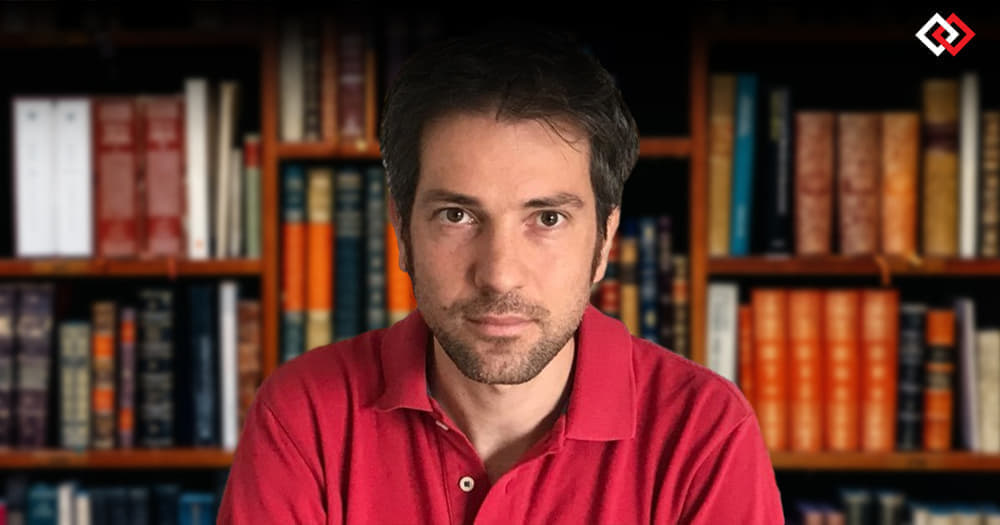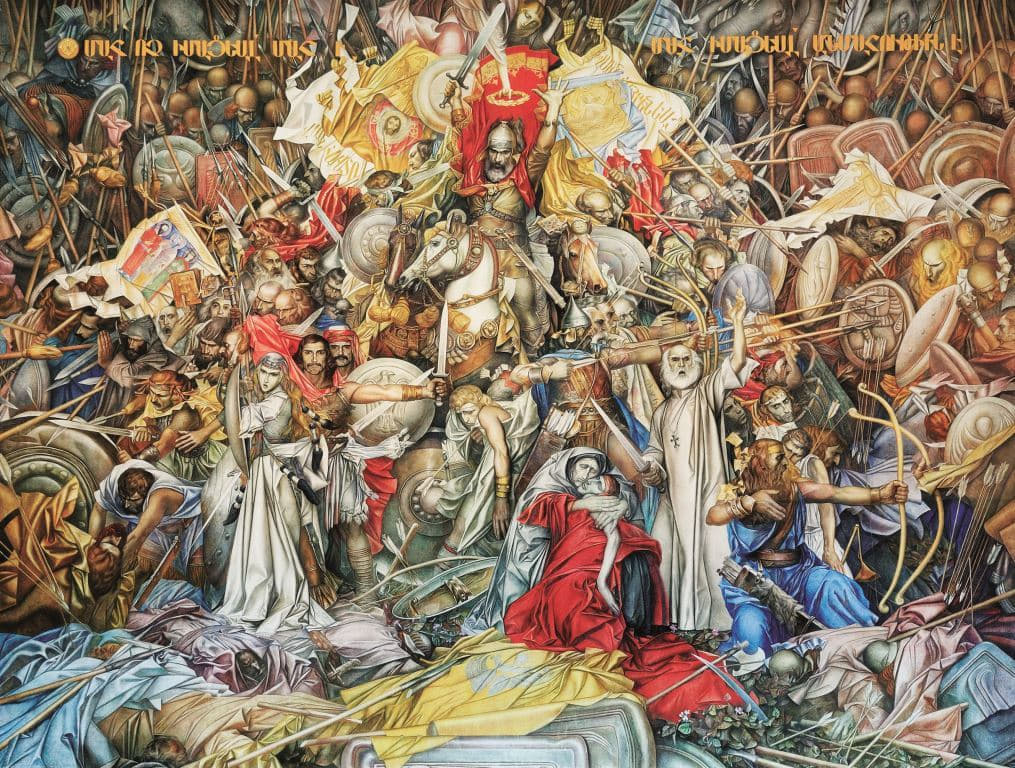After the war of 2020, Azerbaijan again militarily attacked Armenia last September amidst widespread international indifference, confirming disturbing ambitions.
“No one can give us an ultimatum and allow Armenians to place their hopes elsewhere. I will say it again—nothing and no one can stop us.” With this statement on September 22, the dictator controlling Azerbaijan in a clannish way, Ilham Aliyev, is exerting his ambitions. In 2020, after a 44-day war, Azerbaijan, supported by Turkey, invaded a large part of Nagorno-Karabakh. Armenia had to accept a precarious cease-fire under the aegis of Russia. This was constantly violated by Azeri troops, and their incursions into Armenian territory. Aliyev was clear in his intentions. Shortly after the ceasefire he explained, “I said we would drive [the Armenians] out of our lands like dogs, and we did.” Under these conditions, the agreement that the civilian populations could return to their lands obviously remained a non-starter for the Armenian populations.
In order to understand the present-day anguish of the Armenians, a detour through history is necessary. When Tsarist Russia annexed the South Caucasus, it quickly adopted a policy that was unfavorable to the Armenians. This policy was taken over by the USSR, as the Bolshevik regime ceded Nakhchivan and Nagorno-Karabakh (or Artsakh with a clear Armenian majority) to the Soviet Socialist Republic of Azerbaijan and not to that of Armenia.
In the context of the collapse of the USSR, following pogroms of the Armenian population in Sumgait and Baku, and an Azerbaijani desire to “disarm” Artsakh through a racist and discriminatory policy, Artsakh proclaimed its self-determination. In a five-year war, the heroism of Armenian fighters led to the liberation of Artsakh and the establishment of a continuous territory between Artsakh and Armenia in 1994. However, during the fifteen years that followed, Azerbaijan’s position was strengthened by the oil from the Caspian Sea and a dynamic demography.
In this context, the Azeri offensive of September 2022—which killed more than 300 people—shows that Azeri ambitions do not stop at Artsakh. As Tigrane Yegavian lucidly puts it, the aim of Azerbaijan and Turkey is now to nibble away at Armenian territory in order to reduce Armenia to a rump state before making it disappear. Such an offensive has a genocidal purpose, the aim being to eliminate all Armenian presence in the Caucasus.
The fate of the Armenian heritage in Nakhichevan is a good indicator of the threat. The 89 medieval churches have been demolished, 5,480 khachkars (rectangular steles with the Armenian cross which, in Armenian tradition, are used to guide the dead when they rise on Judgment Day) and 22,700 graves have been destroyed by Azerbaijan. Reports from Armenian Heritage in occupied Artsakh are equally disturbing. Finally, the abuses committed by Azeri soldiers on the Armenian civilian population and on prisoners of war clearly show an Azeri desire to exterminate this population. During the last offensive, Anush Apetyan, a 36-year-old Armenian soldier and mother of three children, captured by Azeri soldiers, was raped, dismembered and executed. Her executioners, sure of their impunity, broadcast their crime themselves, which is part of a policy of structural Armenophobia on the part of the regime in Baku.
Such a threat to Armenia is clearly encouraged by Erdogan’s Turkey, which supports Azerbaijan because of Pan-Turkism and an ethno-religious mixture of Turkish nationalism and Islamism. Turkey’s expansionist ambitions are supported by omnipresent propaganda in its films and historical series (despite a few courageous exceptions that go against the grain, such as the series The Club) and by a policy of influence over the Turkish diaspora in Europe. This policy is also approved by Erdogan’s Kemalist opponents (the only opposing party being the HDP, a predominantly Kurdish party that brings together the Turkish electorate that rejects the Turkish-Islamist synthesis and Kemalism).
To speak about what is happening in Armenia, and not to forget it, is more necessary than ever. And to dedicate ourselves so that our leaders become aware of the Turkish threat and act accordingly. So, we can only welcome the publication, under the direction of Éric Denécé and Tigrane Yégavian, of Haut-Karabakh: Le livre noir (The Black Book of Nagorno-Karabakh) and the beginning of mobilization in the French political class, hoping that it will not be just a flash in the pan.
Rainer Leonhardt

The Goal is to Strangle Armenia
Interview with Tigrane Yégavian who has just co-edited Haut-Karabakh: Le livre noir (The Black Book of Nagorno-Karabakh)
Rainer Leonhardt (RL): How should we interpret the new Azeri offensive of September 2022?
Tigrane Yegavian (TY): Since the ceasefire of November 2020, Azerbaijan has been pursuing the war by other means because it is motivated by the desire to consolidate its military advantage at the political level. With the balance of power tipped in its favor and Armenia weaker than ever, the Azeri-Turkish tandem is also taking advantage of Russian setbacks in Ukraine to force Armenia to give in on the following points:
- renunciation of a status for Nagorno-Karabakh, which means accepting its annexation by Azerbaijan and the certainty of ethnic cleansing
- and the establishment of an extraterritorial corridor outside Armenia’s sovereignty in the south of its territory. An ultra-strategic corridor that would link Azerbaijan to Turkey and cut Armenia off from Iran; a new route of the Armenian-Azerbaijani border that would allow the Azeris to nibble away more Armenian territory, relying on the strategy of the fait accompli, given that they have been occupying a hundred square kilometers of Armenian territory since their successive offensives of May 2021 and especially September 2022.
In short, to devitalize Armenia, to make it a non-viable country, and in the long run to strangle it completely.

RL: What are the perspectives of Armenia? And is there any reason to hope via, for example, a rapprochement with the other countries targeted by Turkish expansionism like Greece?
TY: As far as I know, Armenia has no allies. It is on the “wrong side” unlike Ukraine, while its CSTO (Collective Security Treaty Organization) partners, all of them despotic regimes, are clearly on the side of Azerbaijan. Russia acts more like a suzerain, sometimes protector, sometimes pimp, as long as its interests are at stake. While Cyprus and Greece have never failed to show solidarity with Armenia, which is threatened by Pan-Turkism, these two states do not have sufficient leverage within the EU and NATO. Outside the Russian orbit, the only country that can provide both political and military support in the region is not Iran, but India, which shares a common geostrategic vision with Armenia in relation to Pakistan’s alignment with Pan-Turkism and sees Armenia as a route for its competing project with China’s New Silk Roads.
RL: How should the actions of Russia and the USA be interpreted in relation to the Azeri offensives?
TY: The United States is taking advantage of the Russians’ position of weakness to advance its interests in the Caucasus. For the time being, they are putting pressure on Azerbaijan not to invade Armenian territory, without offering military assistance to Yerevan. The Trump administration was not interested in any of this. Today the deal is not the same because we are witnessing the return of the geopolitics of empires: Russians and Turks share areas of influence in their competitive cooperation, Armenia is only a bargaining chip, a pawn on a chessboard that extends from Libya to Central Asia through Syria.
RL: Does the rapprochement between the EU and Azerbaijan over gas leave Aliyev’s hands free?
TY: After demonizing the master of the Kremlin, a de-Christianized Europe without a compass has chosen to sell its soul to a bloodthirsty dictator who has made Armenophobia his raison d’être. Aliyev understands well that he can play this card, and above all that his past, present and future crimes will remain unpunished. If France has tried to help the Armenians, it has been blocked by Germany within the EU, and by the United Kingdom within NATO, which maintains extremely close relations with the regime in Baku. We are living through yet another chapter of the great game, and the Armenians are struggling to negotiate their survival in an environment that is increasingly hostile to them, while the Europeans have no intention of curbing the appetites of the Aliyev-Erdogan tag-team.
Featured: “Battle of Vardanank,” by Grigor Khanjyan; painted 1995-1998. [This interview appears through the kind courtesy of La Nef].
